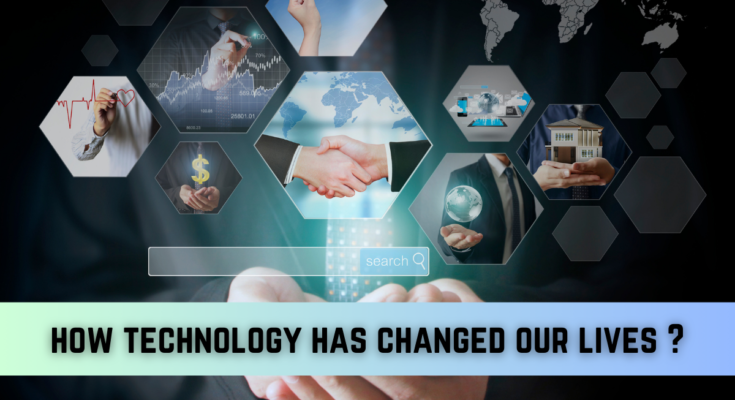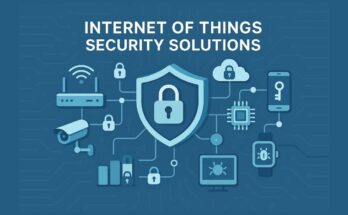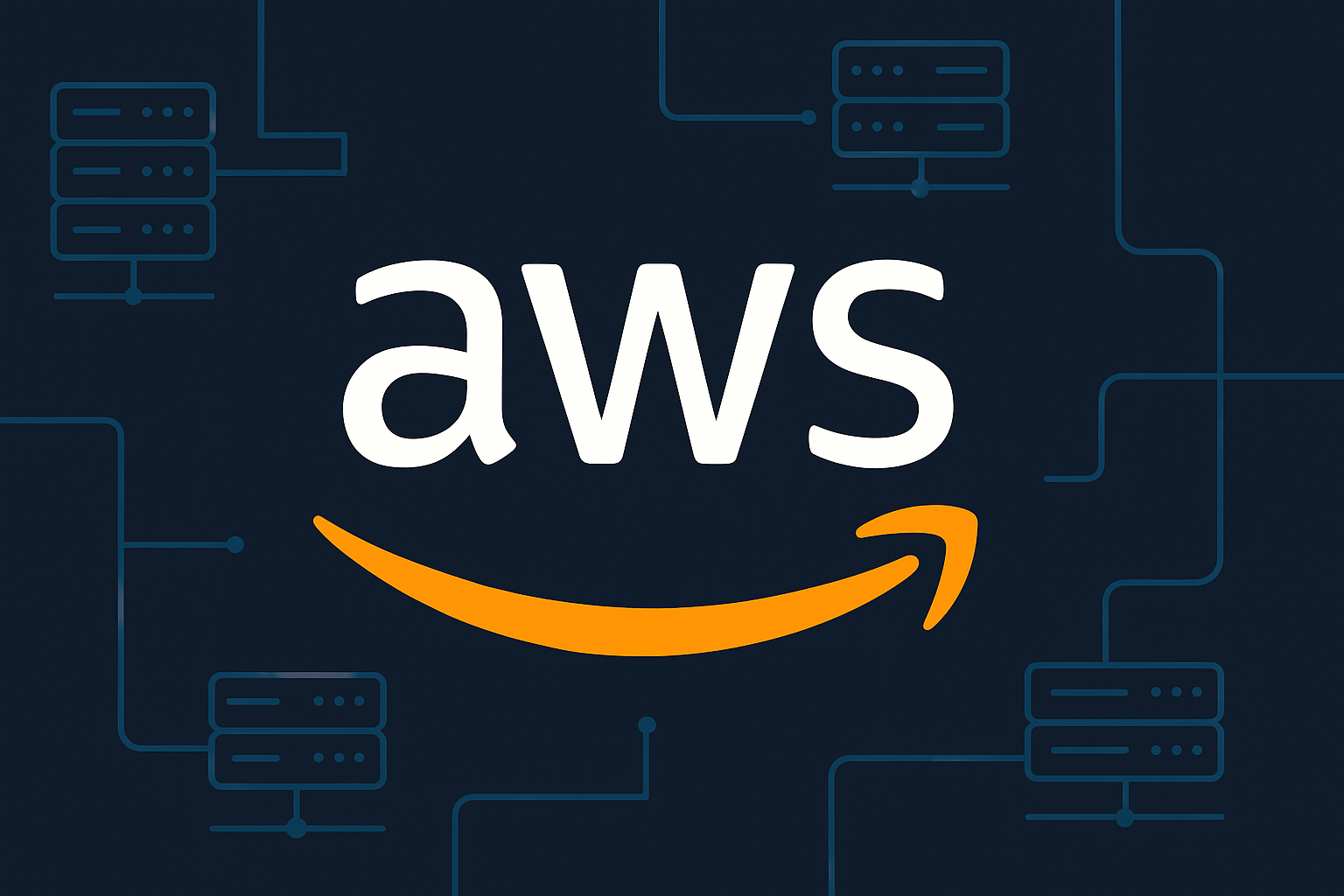Technology influences almost all aspects of human existence—from communication to learning, medicine, and recreation.Developments in the electronic world quickly alter how people conduct their work, social, and personal lives. This article examines how technology has changed our lives in recent history and what it means for the future.

1. Communication: We are No Longer Limited by Distance
Few advancements change the way people communicate like technological advances. Where it used to take days to send and receive a letter, people can now send instant messages, connect via social media, or phone calls to chat with people across the globe in a matter of seconds.
Furthermore, with cell phones in hand and internet access—often equipped with Wi-Fi and/or high-speed internet—people can always connect and always get connected to other people.
Whether it’s WhatsApp, Zoom, or FaceTime, communicating with someone from the other side of the globe is almost like communicating with someone next door.
2. Changes in Work and Employment
This year more than ever before. While the pandemic altered the way that we could work and how companies functioned, it only did so to a degree. The concept of office culture existed before the pandemic because technology had brought us to that threshold; people just weren’t necessarily ready to embrace full digital lives. and changed our lives with platforms like Zoom, Microsoft Teams, and Slack are part of the day-to-day workload as working from home is an option—and for many companies—a mandate.
In addition, companies rely more on automation and artificial intelligence to enhance productivity and efficiency. AI chatbots assist with troubleshooting and answering customer concerns, data analytics monitor business spending, and cloud computing provides the best solutions for collaborative efforts no matter which country the collaborators reside in.
3. Education: Classrooms Without Borders
Education no longer happens in a bubble. E-learning is available through Coursera and Udemy, while Khan Academy allows citizens to access professionals in any field at any time, anywhere in the world. The learning process involves no longer in-person classrooms, printed texts, and educators; instead, virtual classrooms, e-books, and MOOCs (massive open online courses) allow students to learn at their pace, at their discretion.
Furthermore, people learn through technology. AI (artificial intelligence) serves as tutoring for students struggling to grasp complex information; VR (virtual reality) allows medical and engineering students to replicate their skills in a wholly fabricated environment before entering the real world.
4. Healthcare Innovations: Technology that Saves Lives
The heights of medical technological advancements have reached phenomenal proportions in prevention and diagnosis.
Wearable medical devices—from Fitbits to smartwatches to glucose meters—monitor heart rates and blood sugar levels, while AI and software assess overnight sleeping patterns and daily activity diagnostics, helping people stay more in touch with their bodies than ever before.
Moreover, with the expansion of telehealth, patients can meet with their practitioners virtually without ever having to set foot into an office with in-person requirements.
Furthermore, robotics and artificial intelligence now augment surgery and diagnostic appointments like never before. For example, AI combs through vast amounts of data and diagnoses people before they even realize they are sick—identifying irregularities like cancerous cells earlier than expected. Robotic surgery achieves such acute levels of precision that it reduces the likelihood of recovery time due to human error.
5. Entertainment: Digital Domination
No more renting DVDs or waiting for a show to come on and rushing home at a specific time. A monthly subscription—any one of a thousand (Netflix, YouTube, Spotify)—instantly guarantees people access to anything. As long as they continue paying the monthly fees, they can watch or listen to whatever they desire, whenever they want.
The same goes for gaming. Graphics have advanced over the years for realistic and pleasing experiences, not to mention virtual reality and cloud gaming connections that enable people to play against and battle other people all around the world on PlayStation, Xbox, and Steam.
6. Retail and E-Commerce: The Pinnacle of Accessibility
There is nothing easier—and more varied—in terms of access than shopping, than online shopping. E-commerce sites—Amazon, Flipkart, Alibaba—give access to goods, literally from around the globe and technology changed our lives , all for lower price points than a brick-and-mortar store due to e- commerce sites having fewer overhead costs and offering payment options like contactless, digital wallets, and cryptocurrency for safe, worry-free transactions.
Moreover, shoppers won’t even have to go looking for things as AI (artificial intelligence) software provides suggested shopping based on what one looks at and purchases in the past. Similarly, AR (augmented reality) can show someone what a potential purchase will look like in their environment or on them before it is even purchased.
7. Transportation: Smarter and More Efficient
Transportation has become high-tech—GPS, ride sharing, and electric cars are just a few examples. An Uber or Lyft can come to anyone at work with the push of a button, and GPS gets anyone anywhere on time with turn-by-turn, pinpoint accuracy.
Future transportation is all about efficiency and sustainability. Electric and self-driving cars are becoming the more standard; companies like Tesla are leading the way to a more sustainable car world, relying exclusively less on traditional fossil fuels to fuel its inventions.
Transportation has become high-tech—GPS, ride sharing, and electric cars are just a few examples. An Uber or Lyft can come to anyone at work with the push of a button, and GPS gets anyone anywhere on time with turn-by-turn, pinpoint accuracy.
Future transportation is all about efficiency and sustainability. Electric and self-driving cars are becoming the more standard; companies like Tesla are leading the way to a more sustainable car world, relying exclusively less on traditional fossil fuels to fuel its inventions.
The Future of Technology

how technology has changed our lives Technology to will keep growing, and the future trends of artificial intelligence, blockchain, and quantum computing will reshape different sectors. Automation and robotics are bound to transform the labor market, requiring new sets of skills and job adjustments.
Yet, ethical questions, concerns related to data privacy, and over-screening implications are still areas that require mitigation. Balancing technological development and responsible use is key to successful progress.
Conclusion
Since technology has integrated so many elements of existence—communication, employment, education, and even leisure—the world has become better, making it easier to get things done and make day-to-day decisions. However, falling into traps of technology through excessive use and unethical exploits remains increasingly important to acknowledge. The longer technology maintains its presence and strides are made, the easier it becomes to adapt to existing in a technological world.
“This article examines how technology has changed our lives, to know more article like this visit techbyprime”





One Comment on “How Technology Has Changed Our Lives ?”